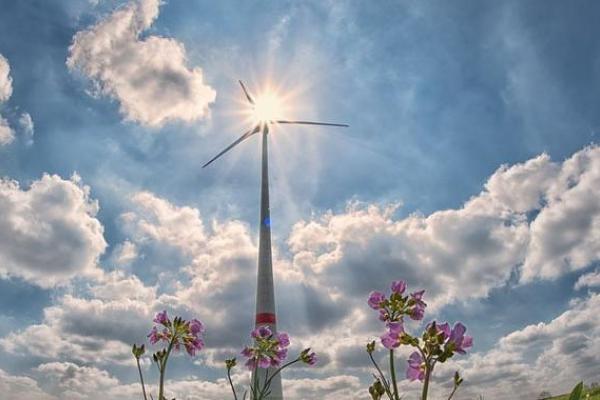Filter by
News (506)
RSS![Adaptation Plan to Climate Change of the Abruzzo Region [IT]](https://managenergy.ec.europa.eu/sites/default/files/styles/oe_theme_ratio_3_2_medium/public/2023-04/blade-3517916_1920_0.jpg?itok=3Yo-LiuE)
The Region of Abruzzo has developed, in coordination with the main national and EU working groups of the field (Italian State- Region Conference, Covenant of Mayors for climate and energy, FEDARENE), the guidelines for the realisation of the Regional Plan for Adaptation to Climate Change (PACC).
![Generating green electricity in South East Sweden [SE]](https://managenergy.ec.europa.eu/sites/default/files/styles/oe_theme_ratio_3_2_medium/public/2023-04/Flislager_Ronneby_0.jpg?itok=0IyFZjfR)
Nearly all district heating is biomass-based in Sweden. However, not all plants generate both heat and power. Today, there are around 300 district heating plants (<10 MWheat) that only produce heat.
In September 2015, the Basque Government approved the Decree 178/2015 on energy sustainability in the public sector of the Basque Country, that regulates energy saving, energy efficiency and the use of renewable energy in the buildings of the government, regional bodies and other organisations
![Toolbox for travel advice and travel-free meetings in Örebro [SE]](https://managenergy.ec.europa.eu/sites/default/files/styles/oe_theme_ratio_3_2_medium/public/2023-04/person-731492_1920.jpg?itok=CQ8z01xq)
Great savings can be achieved in terms of emissions, costs and time in companies and organisations if employees can commute and do business trips by bike, public transport and walking instead of going by car and using travel-free meetings.
![Nordic Solar Power success story in Mälardalen [SE]](https://managenergy.ec.europa.eu/sites/default/files/styles/oe_theme_ratio_3_2_medium/public/2023-04/solar-energy-2157212_1920.jpg?itok=l1IqRXpu)
The Swedish Solar Power Fair gathers the leading companies in solar power, energy storage and environmental technology as well as building owners and decision-makers from all over Sweden.
![Energy-saving renovation: good for the planet & the wallet [FR]](https://managenergy.ec.europa.eu/sites/default/files/styles/oe_theme_ratio_3_2_medium/public/2023-04/picardie%20pass%20reno.jpg?itok=R-XWs_Fb)
Thanks to ELENA, the EIB's technical assistance initiative, France’s first energy renovation public service is supporting the restoration of a thousand individual and collective housing units in Picardy (now called Hauts-de-France)’s stock of private residential properties.
![Promoting the Use of RES & EE in Medjimurje, a rural areas [HR]](https://managenergy.ec.europa.eu/sites/default/files/styles/oe_theme_ratio_3_2_medium/public/2023-04/MENEA%20building%201.jpg?itok=o6Ae3z3M)
Medjimurje Energy Agency Ltd., MENEA, is participating as a partner in Project RURES, which has been approved for financing through the Interreg Central Europe program.

Energy transition is a new concept that we use to say - switch to clean energy, smart and responsible energy management. In practice, this means - use of renewable energy sources and significantly improved energy efficiency.

The aim of the project is to develop the integration of solar thermal energy in district heating systems. In the region, the potential is very significant: indeed, from 400 000 m² to 1 600 000 m² of solar thermal collectors could be integrated into district heating systems.

Energy performance contracting is mostly found in the public sector and to a lesser extent in the industrial and commercial building sectors. For this reason, EPC+ set out to experiment the application of this model to SMEs and the results are promising.
